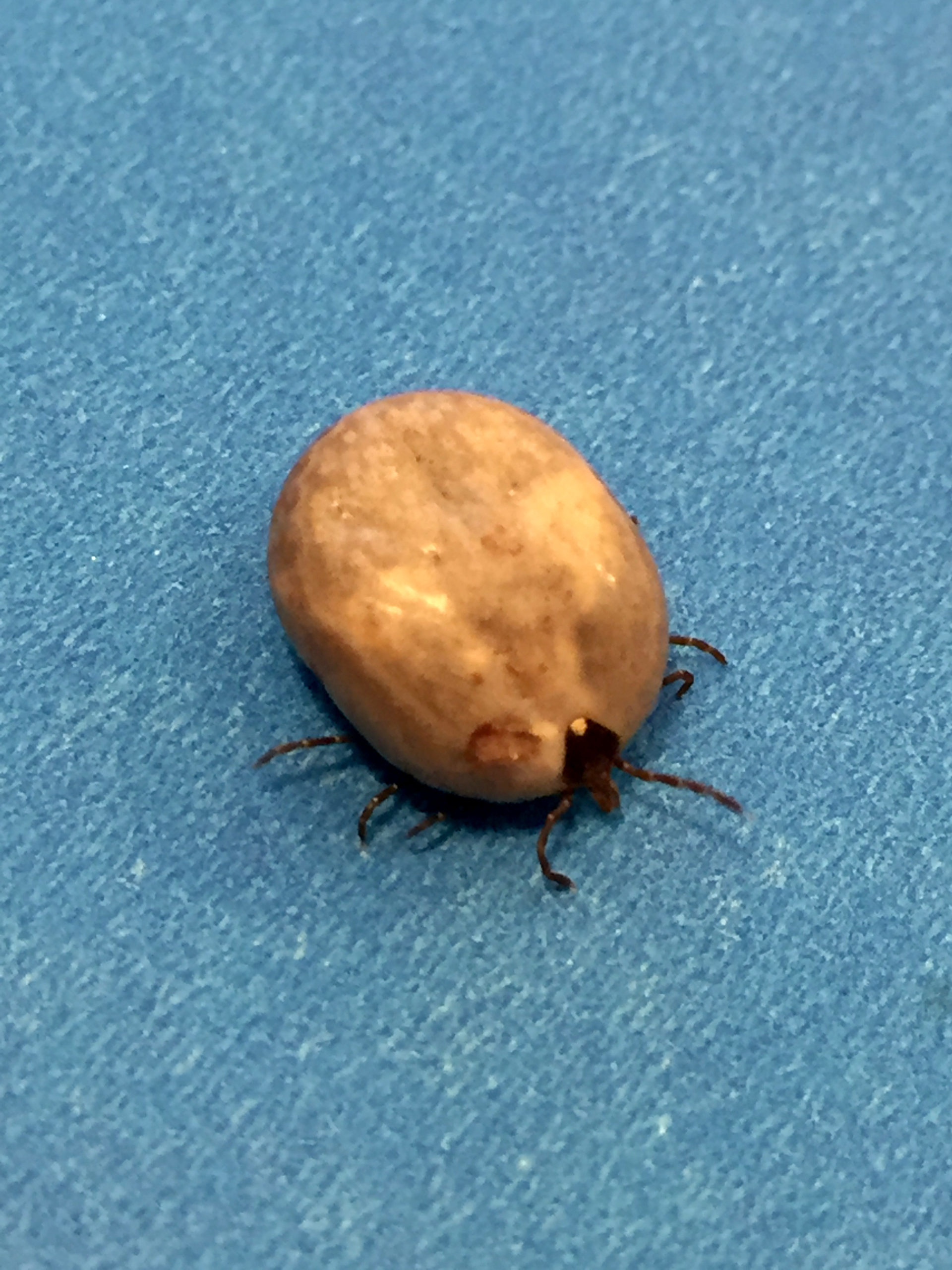10 July 2020
Debunking the alleged connection between Lyme disease and Unrelated Conditions
Posted by Shane Hanlon
This is part of a student blog series as part of the University of Pittsburgh’s Disease Ecology Class that our own Shane M Hanlon is currently teaching. Find out more about the series and read all the posts here!
By: Kouadio Toukou

Engorged adult Lone star tick. Credit: Wikipedia Commons
Lyme Disease, or Lyme Borreliosis is a zoonotic disease caused by the Borrelia genus of Bacteria. This bacteria is usually transferred to a human host by the bite of a tick. Lyme disease can effect the host’s neurology and often results in fever, headache, tiredness, various bodily pains, and in some cases memory loss. Lyme disease has proven to be a major problem in the United States, affecting an estimated 300,000 Americans yearly. It is most common in suburban and rural areas where overlap between deer and human territory causes more ticks to be able to bite and thus infect humans. While Lyme disease is a real threat with significant physical detriments, recent myths have begun to circulate concerning the possible role of Lyme disease in the development of other other conditions. This blog entry is intended to debunk two of these myths.
One of the myths concerning Lyme disease is that it causes autism. This belief is largely promoted by the organization known as the Lyme induced Autism Foundation (LIAF). LIAF claims that up to 90% of Autistic children have been infected with Borrelia. Despite being adamant about the legitimacy of these claims, they refuse to release any of their data. In addition to a lack of transparency concerning their data, the methods which they claim to have employed seem to be non standard and are not widely accepted as valid by the scientific community. Other researchers have not been able to produce any results that would suggest a connection between Lyme disease and Autism. In addition to the extremely sketchy nature of this organization and it’s claims, researchers have shown that there is no correlation between the prevalence of Lyme disease and the prevalence of Autism in any of 9 surveyed states.
Another unsubstantiated claim concerning Lyme disease is that it can cause amyotrophic lateral sclerosis (ALS). Due to some ALS patients testing positive for Borrelia in serological tests and certain neuroprotective properties of antibiotic medicines used to treat Lyme disease, some have come to believe that Lyme disease has a causal relationship with ALS. While the large swathes of Lyme disease patients who recover and never develop ALS are unlikely to be affected by this myth, it may cause those with ALS to falsely believe that their condition is a result of this zoonotic disease. While information regarding initial studies which claim the link between ALS and lyme disease is scarce, there are a plethora of studies with large sample sizes which thoroughly debunk the theory that these diseases are causally related. In a large study of 4000 patients with ALS, less than 1% tested positive for Lyme disease. This percentage is comparable to that of the rest of the population, indicating that there is no linkage between these two conditions.
Lyme disease is a threatening enough zoonotic disease without the addition of all of these alleged results. These conditions are probably pinned on Lyme disease because of their mysterious nature and Lyme’s effects on the nervous system. When people and their loved ones are faced with such difficult conditions, it’s hard to sit back and not fully understand what’s going on. This desperation could easily lead to pinning their cause on something as ubiquitous as Lyme disease, but at the end of the day, this misattribution of causality only gives false hope to those who are suffering and detracts from the pursuit of the real causes of these conditions. For these reasons, it’s important to debunk such myths and remain skeptical of pseudo-scientific hearsay. When one is faced with new vague theories concerning diseases, they should examine them closely. Who knows, you might just find a tick!
Sources:
2.“Does Lyme disease cause Autism in children?” (ALDF.com)



 The Plainspoken Scientist is the science communication blog of AGU’s Sharing Science program. With this blog, we wish to showcase creative and effective science communication via multiple mediums and modes.
The Plainspoken Scientist is the science communication blog of AGU’s Sharing Science program. With this blog, we wish to showcase creative and effective science communication via multiple mediums and modes.